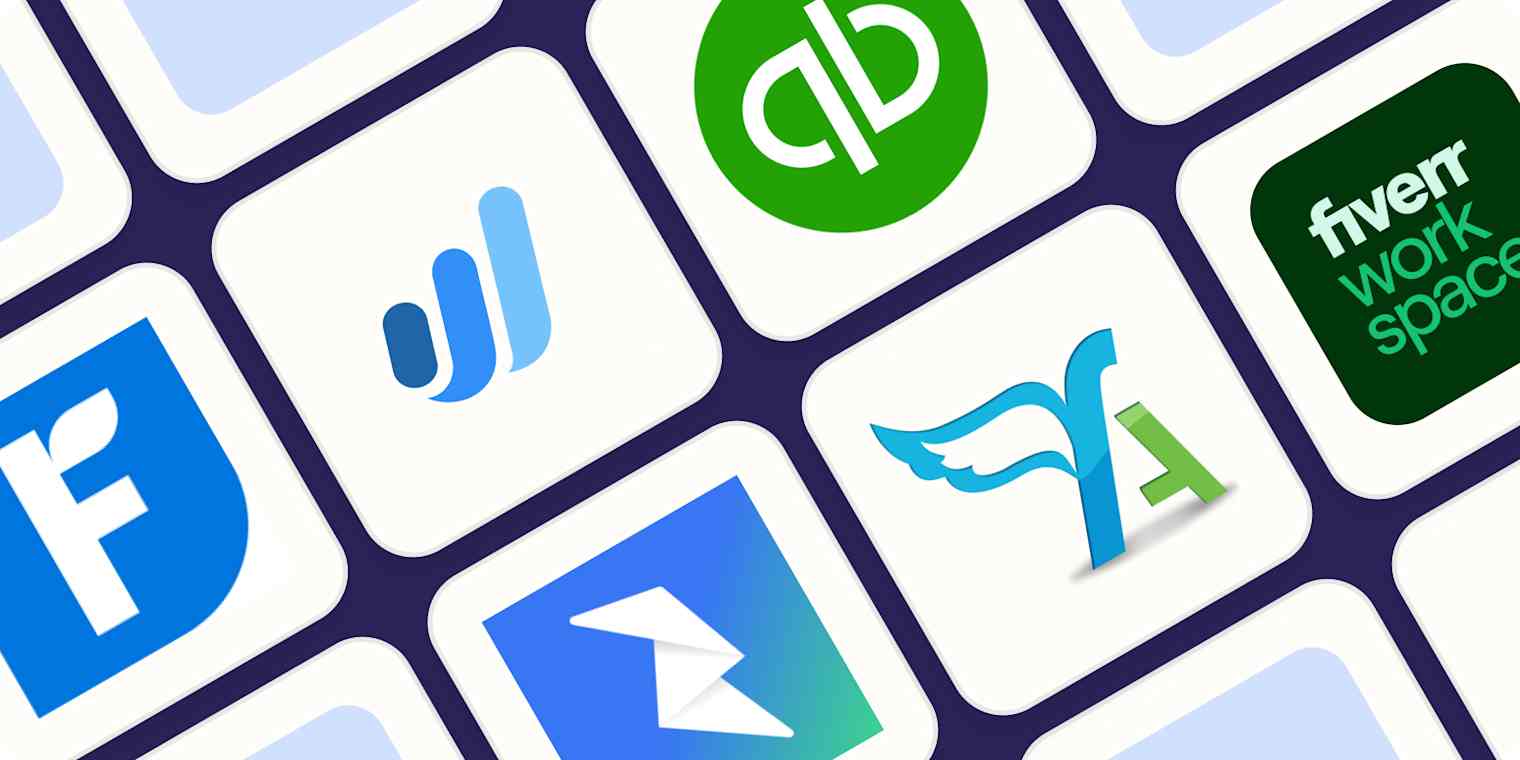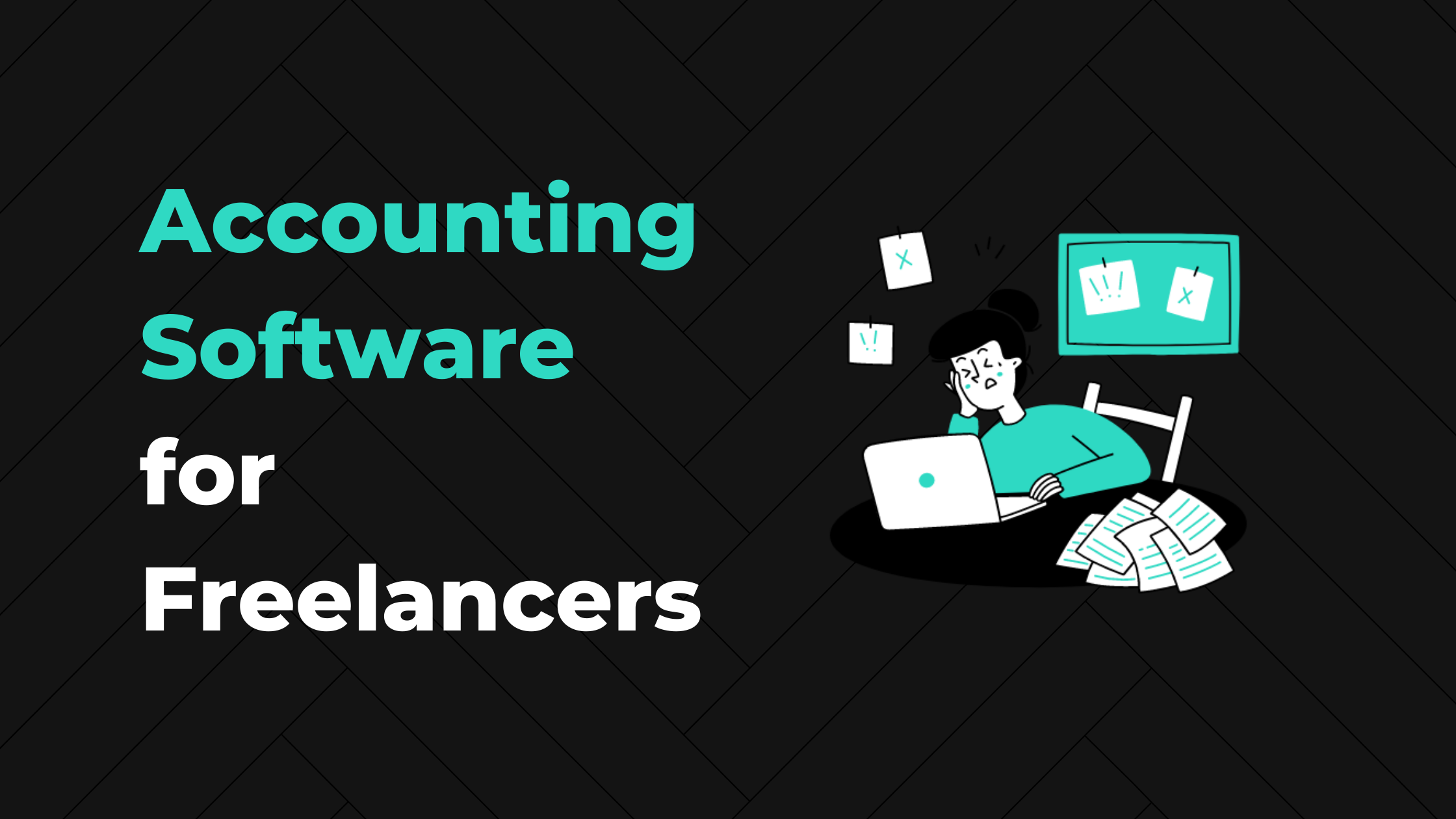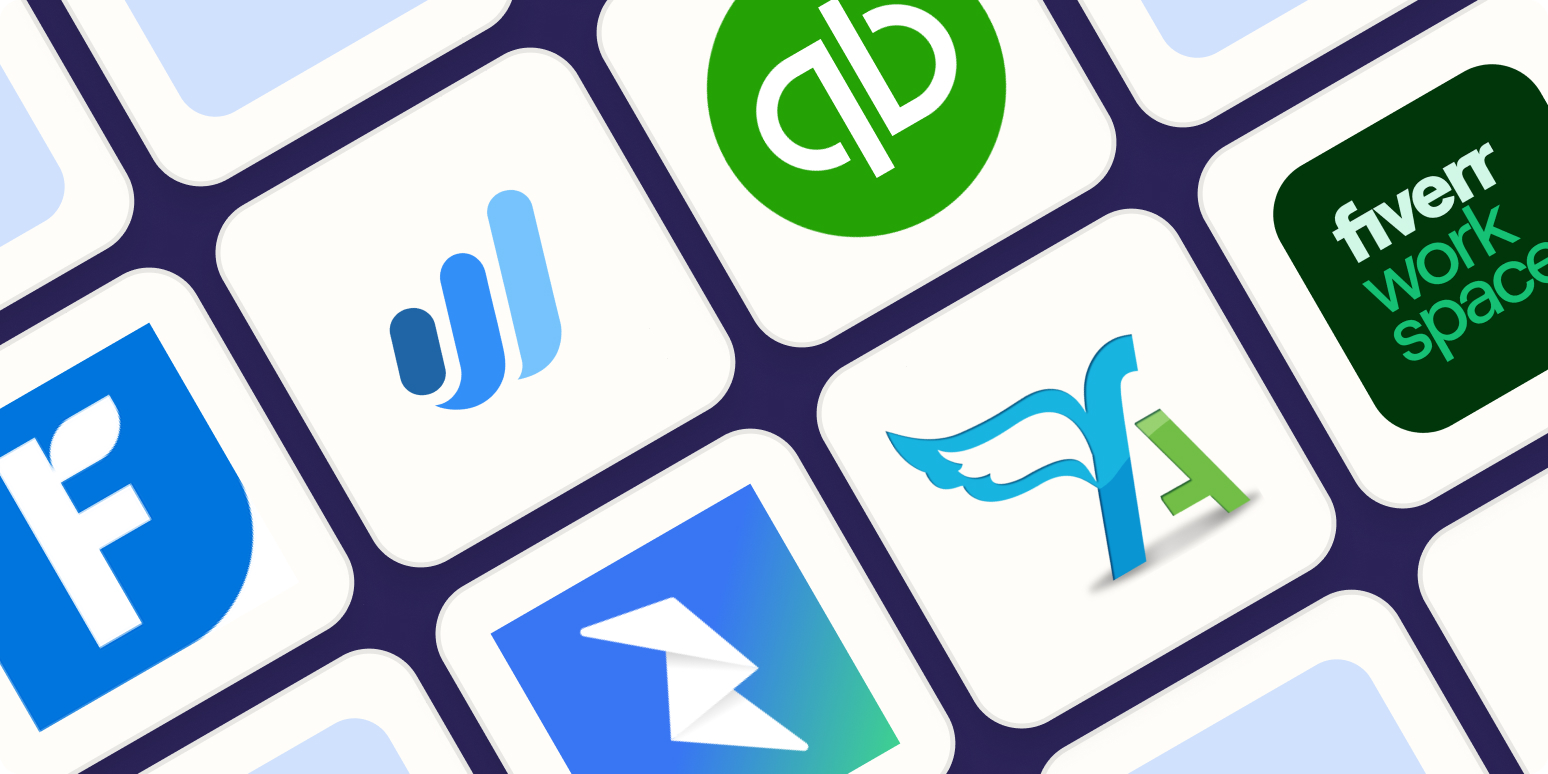Managing finances as a freelancer can be challenging. The right accounting software can make a huge difference.
Freelancers often juggle multiple projects, clients, and payments. Keeping track of all financial transactions manually is time-consuming and prone to errors. This is where accounting software comes in handy. It simplifies the process, ensuring you stay organized, and comply with tax regulations. With features like invoicing, expense tracking, and financial reporting, accounting software helps freelancers maintain a clear picture of their financial health. Whether you’re just starting or looking to improve your financial management, investing in the right accounting software is crucial. Let’s explore the best options available to make your freelance journey smoother. To learn more about Godlike Minecraft Server Hosting, visit their website.

Credit: zapier.com
Introduction To Accounting Software For Freelancers
As a freelancer, managing finances can be daunting. Accounting software simplifies this process. It helps track income, expenses, and taxes, ensuring financial health and compliance.
Understanding The Importance Of Financial Management For Freelancers
Freelancers often juggle multiple tasks, from client projects to marketing. Financial management might take a backseat. However, maintaining clear financial records is crucial. It helps in:
- Tracking income and expenses accurately
- Budgeting for projects and personal needs
- Filing taxes on time and avoiding penalties
- Making informed financial decisions
Without proper financial management, freelancers might face cash flow issues. They may miss tax deadlines or struggle to understand their financial health.
How Accounting Software Can Help Simplify Your Finances
Accounting software offers numerous benefits:
- Automates Transactions: Automatically records transactions, reducing manual entry errors.
- Generates Invoices: Creates professional invoices quickly, helping you get paid faster.
- Tracks Expenses: Categorizes expenses, making budgeting simpler.
- Tax Compliance: Calculates taxes and generates necessary reports, ensuring compliance.
- Financial Reports: Provides insights into your financial health with profit and loss statements, balance sheets, and more.
Using accounting software, freelancers save time and reduce stress. They can focus more on their core work, knowing their finances are well-managed.
| Feature | Benefit |
|---|---|
| Automated Transactions | Reduces manual entry errors |
| Invoice Generation | Saves time and ensures prompt payments |
| Expense Tracking | Helps in budgeting and financial planning |
| Tax Compliance | Avoids penalties and ensures accuracy |
| Financial Reports | Provides a clear picture of financial health |
Key Features Of Accounting Software For Freelancers
Choosing the right accounting software can significantly impact your freelancing business. The best software offers a range of key features that can streamline your financial management, from invoicing to expense tracking. Let’s explore these essential features in detail.
Automated Invoicing: Save Time And Ensure Accuracy
Automated invoicing is a game-changer for freelancers. Create and send invoices automatically, reducing manual errors and saving valuable time. The software can schedule recurring invoices for regular clients, making sure you never miss a payment deadline.
Expense Tracking: Keep Tabs On Your Spending
Tracking expenses is crucial for managing your freelancing budget. Accounting software allows you to log expenses in real-time and categorize them for easy reference. You can even attach receipts and documents, ensuring you have all the necessary proof for future reference.
Tax Preparation: Simplify Tax Season
Tax season can be stressful, but the right software simplifies the process. It can track deductible expenses and generate tax reports, making it easier to file your taxes accurately. Some software even integrates with tax filing services, providing a seamless experience.
Client Management: Maintain Professional Relationships
Managing clients efficiently is vital for a freelancer’s success. Accounting software often includes client management tools, helping you keep track of contacts, project timelines, and payment histories. This ensures you maintain professional and organized relationships with your clients.
Financial Reporting: Gain Insights Into Your Business
Understanding your financial health is essential for growth. The software provides comprehensive financial reports that give you insights into your income, expenses, and overall profitability. These reports help you make informed decisions and plan for the future.
Pricing And Affordability
Understanding the pricing and affordability of accounting software is crucial for freelancers. It helps in choosing the right tool without breaking the bank. Let’s delve into different pricing tiers, assess their value for money, and compare free vs. paid options.
Different Pricing Tiers And What They Offer
Many accounting software solutions offer various pricing tiers to cater to different needs. Here are some examples:
| Plan | Price | Features |
|---|---|---|
| Basic | $7.99/month | Invoicing, Expense Tracking, Basic Reports |
| Standard | $15.99/month | Everything in Basic, plus Time Tracking, Project Management |
| Premium | $23.99/month | Everything in Standard, plus Advanced Reporting, Multi-Currency |
Assessing The Value For Money
It’s important to assess if the software offers good value for money. Consider the following aspects:
- Features: Does the software offer all the features you need?
- Usability: Is the software easy to use and navigate?
- Support: Does it provide reliable customer support?
- Reviews: What do other users say about the software?
These factors help determine if the price is justified by the benefits offered.
Free Vs. Paid Options: What You Need To Know
Freelancers often need to decide between free and paid accounting software. Here are some pros and cons:
Free Options
- Pros: No cost, basic features, useful for simple needs
- Cons: Limited features, may lack support, potential for ads
Paid Options
- Pros: More features, better support, no ads
- Cons: Monthly or annual cost
Choosing between free and paid depends on your specific needs and budget. Carefully weigh the benefits against the costs to make an informed decision.
Pros And Cons Of Using Accounting Software
Using accounting software can transform how freelancers manage their finances. Understanding the pros and cons helps in making an informed decision. Below are the key advantages and potential drawbacks of using accounting software.
Advantages: Efficiency, Accuracy, And Time-saving
Efficiency: Accounting software automates many repetitive tasks. Freelancers can quickly generate invoices, track expenses, and manage financial reports. This efficiency reduces the manual workload significantly.
Accuracy: Manual data entry often leads to errors. Accounting software minimizes these errors by automating calculations and data entry processes. This ensures precise financial records.
Time-Saving: By automating financial tasks, freelancers save valuable time. This allows them to focus on their core work. The software can generate reports with a few clicks, streamlining the entire accounting process.
Potential Drawbacks: Learning Curve And Cost
Learning Curve: Adopting new software comes with a learning curve. Freelancers may spend initial time understanding the software’s features. This can be a barrier for those not tech-savvy.
Cost: Quality accounting software often comes with a price. Freelancers must evaluate if the benefits outweigh the costs. Some software solutions can be expensive, especially for those on a tight budget.
User Reviews: Real-world Experiences
Freelancers share their experiences with various accounting software. Below are some real-world insights:
| Software | Rating | Review |
|---|---|---|
| Software A | 4.5 | “Great for managing invoices and expenses. Saves a lot of time.” |
| Software B | 4.0 | “Good accuracy but took time to learn. Worth the investment.” |
| Software C | 3.5 | “Affordable but lacks some advanced features. Overall decent.” |
These reviews highlight the practical benefits and challenges freelancers face. It’s essential to consider both positive and negative feedback when choosing accounting software.
Recommendations For Ideal Users And Scenarios
Choosing the right accounting software is crucial for freelancers. It helps manage finances, track expenses, and ensure compliance with tax regulations. Below, we dive into who would benefit the most from accounting software, specific use cases, and tips for getting started.
Freelancers Who Would Benefit The Most
Freelancers across various fields can benefit from accounting software. Here are some examples:
- Graphic Designers: They often handle multiple projects and clients simultaneously.
- Writers and Content Creators: Managing income from various platforms and clients can be complex.
- Consultants: They need to track billable hours and project expenses accurately.
- Developers: They frequently juggle between different projects and need to manage invoices efficiently.
Specific Use Cases: Examples And Scenarios
Below are some specific scenarios where accounting software can be particularly useful:
| Scenario | Benefits |
|---|---|
| Tracking Project Expenses | Helps in monitoring project costs and ensuring profitability. |
| Generating Invoices | Automates invoice creation and ensures timely payments. |
| Tax Preparation | Organizes income and expenses for accurate tax filing. |
| Managing Multiple Clients | Keeps track of payments and outstanding invoices for various clients. |
Tips For Getting Started With Accounting Software
Here are some tips to help you get started:
- Choose the Right Software: Look for features that match your freelancing needs.
- Set Up Your Accounts: Add your bank accounts, credit cards, and PayPal to track transactions.
- Customize Invoices: Use templates to create professional invoices that reflect your brand.
- Regularly Update Records: Ensure all income and expenses are recorded for accurate financial tracking.
- Seek Support: Use available resources, tutorials, and customer support for any issues.
Using accounting software can streamline your financial management, allowing you to focus more on your freelancing work.

Credit: www.waveapps.com

Credit: peakfreelance.com
Frequently Asked Questions
What Is The Best Accounting Software For Freelancers?
The best accounting software for freelancers is QuickBooks Self-Employed. It offers easy expense tracking, invoicing, and tax calculations.
Is Quickbooks Good For Freelancers?
Yes, QuickBooks is great for freelancers. It simplifies invoicing, expense tracking, and financial management, saving time and effort.
Can I Use Quickbooks If I Am Self-employed?
Yes, you can use QuickBooks if you are self-employed. It offers features tailored for freelancers and small business owners.
What To Use Instead Of Quickbooks Self-employed?
Consider using alternatives like FreshBooks, Wave, Xero, or Zoho Books. These platforms offer robust accounting features for freelancers.
Conclusion
Choosing the right accounting software can simplify your freelance work. It helps manage finances, track expenses, and generate invoices effortlessly. With so many options available, finding the right one is crucial. Consider features, ease of use, and cost. Investing in the right tool saves time and reduces stress. Start today and keep your freelance business organized and efficient. For further details, visit Godlike.Host.





